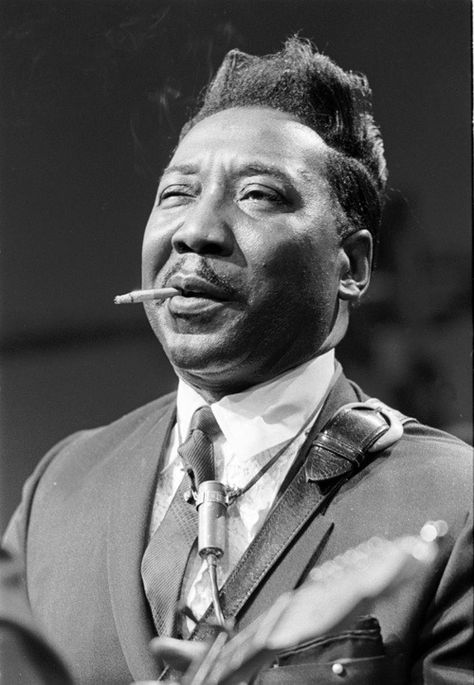B.B. King may be the undisputed king of blues to a lot of us, but when it comes to the Chicago blues scene, Muddy Waters is still arguably the greatest Windy City bluesman ever. And his influence has transcended generations – the Rolling Stones got their name from one of his songs, and Jimi Hendrix counted him as one of his first-ever blues influences. His songs have been covered or referenced by numerous rock and blues musicians, his name dropped by the Beatles on “Come Together” and his name and legacy referenced on the big and small screen alike.
However, Muddy Waters did not originate from Chicago – he was born McKinley Morganfield in Issaquena County, Mississippi on April 4, 1915. The popular legend suggests that Waters got his stage name because of his penchant for playing in the mud as a small boy. He started out as a harmonica player, and by the age of 17, he had saved enough money earned as a sharecropper to buy his first guitar. Like most young bluesmen of the era, Waters’ early influences included Delta blues icons like Robert Johnson, Blind Lemon Jefferson and Son House.
Waters was first recorded on August 28, 1941, by Library of Congress archivist Alan Lomax, then researching on America’s top country bluesmen. A year later, a visibly impressed Lomax would return for another recording session. The success of the Lomax recordings in a cultural vein inspired Waters to move to Chicago in 1943 and become a full-time musician. Waters would work several menial jobs during the period to make ends meet, and in the evenings he would perform in local events on the south side of Chicago. Finally, in 1948, Waters recorded his first major hit, “I Can’t Be Satisfied”, which became a huge hit in Muddy’s adopted hometown. In the early-mid ‘50s, songs like “I’m Your Hoochie Coochie Man”, “I Just Want to Make Love to You” and “Mannish Boy” would all become Top 5 R&B hits and timeless blues classics to be covered frequently in the years to come.
An English tour in 1958 helped introduce the music of Muddy Waters to scores of would-be British Invasion musicians. However, back home in America, Waters was losing favor on the R&B charts. While the ‘60s produced some quality songs such as “You Need Love” (later appropriated by Led Zeppelin as “Whole Lotta Love”, there were also missteps such as 1968’s “psychedelic blues” album Electric Mud. Despite influencing so many white British and American rock ‘n’ rollers in the 1960s, Muddy’s own career was floundering, and it would be a while before the world would hear a quality blues record again from one of the Chicago scene’s pioneers. That “comeback” album came in 1977 – Hard Again, an album produced by Johnny Winter, one of the many young musicians influenced by Waters’ Chicago blues sound. Winter would produce two more albums for Waters, but the older bluesman’s health was beginning to fail fast.
Muddy Waters passed away on April 30, 1983 from heart failure. But the compilations still keep coming, as Waters left behind a treasure trove of unreleased live and studio material. If not for Waters’ undying influence, it’s possible many of the rock bands we listen to today (or listened to yesterday) may not have come up with all those great songs.

Leave a Reply